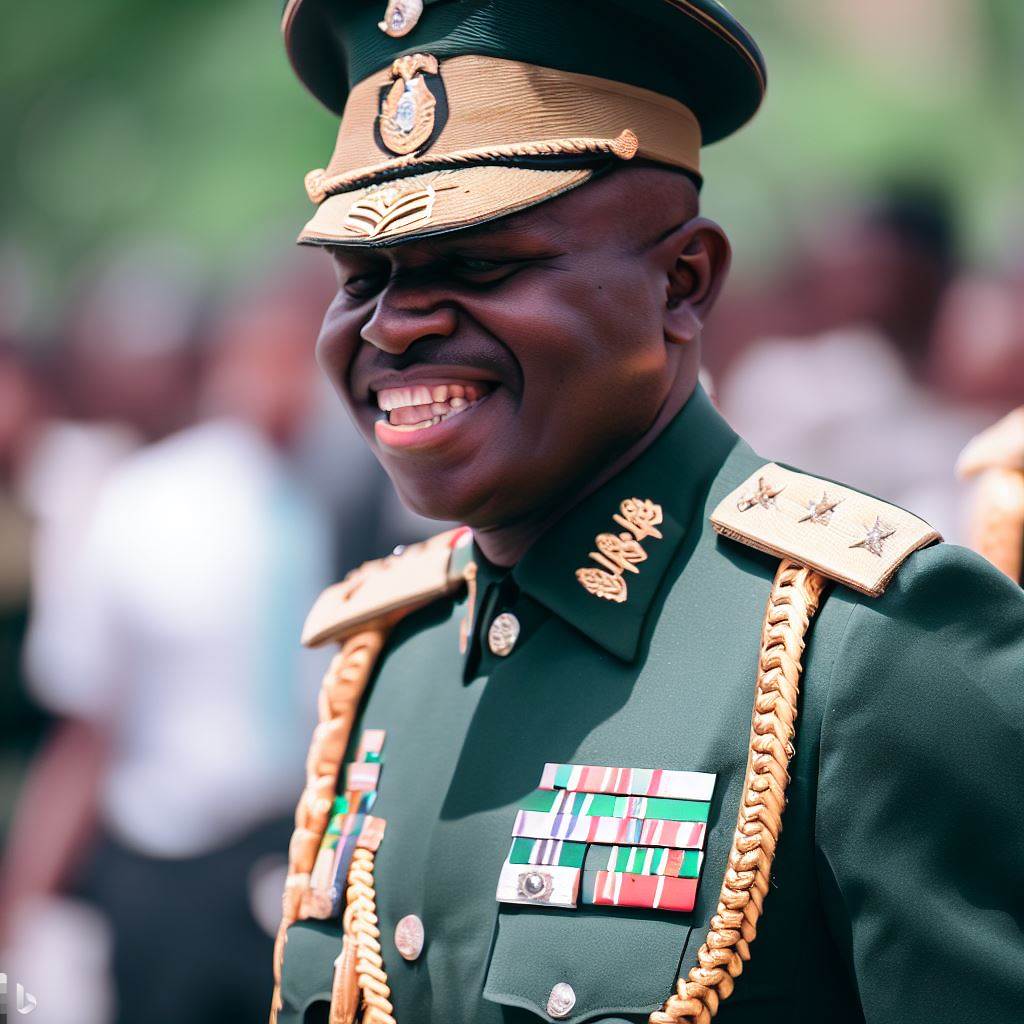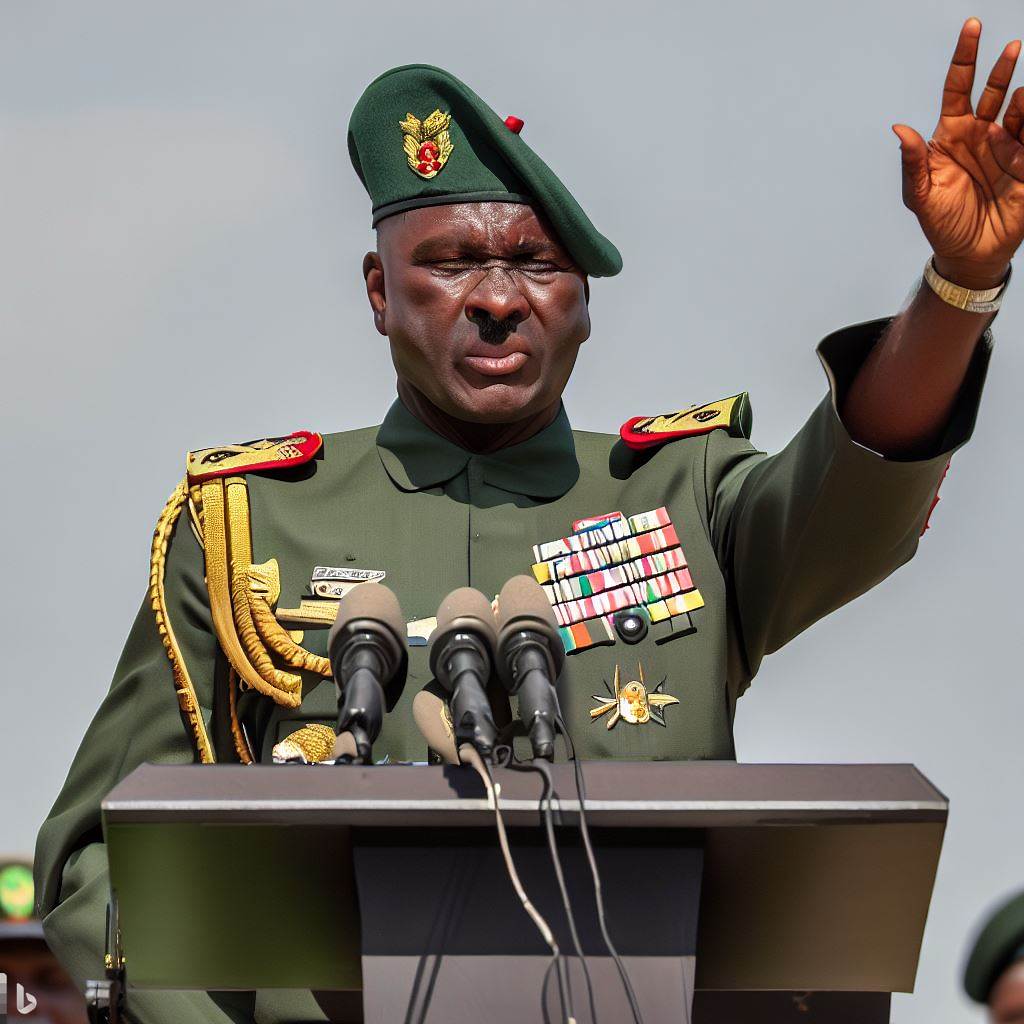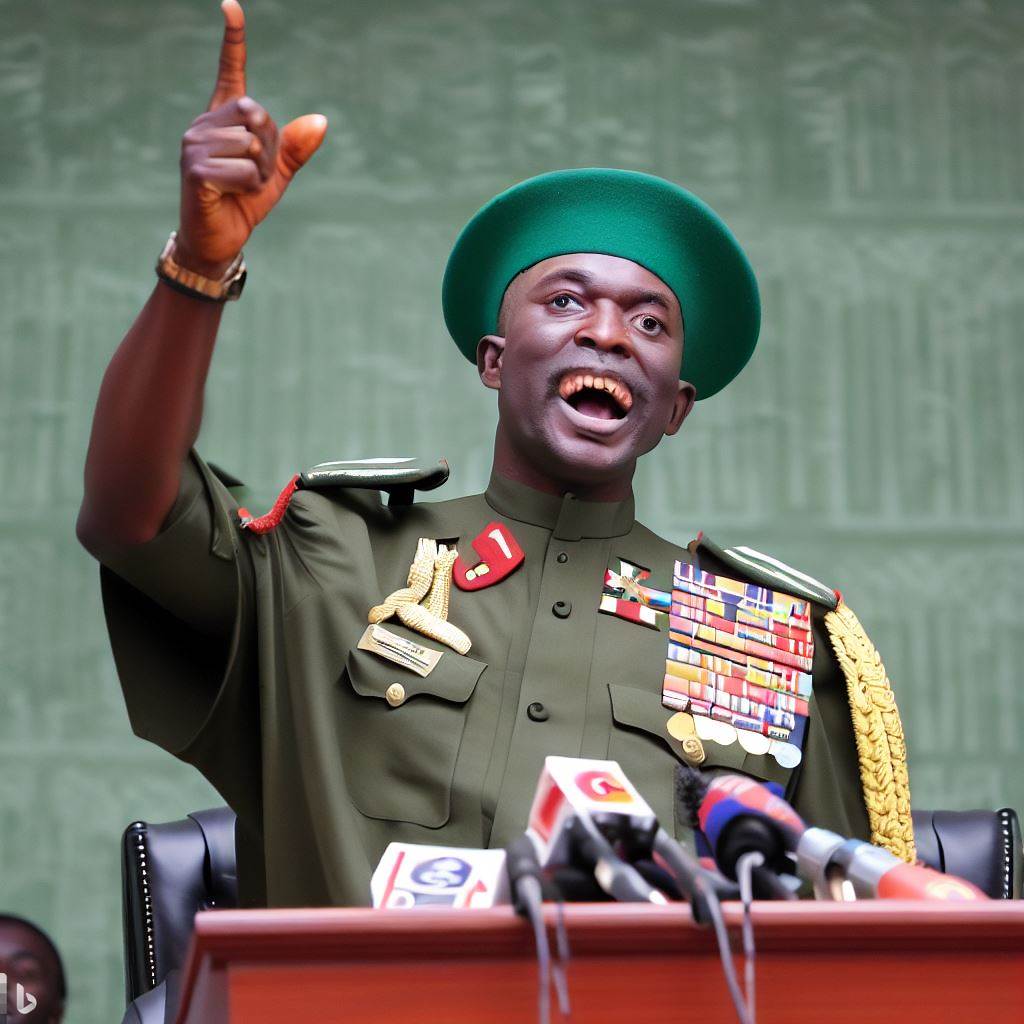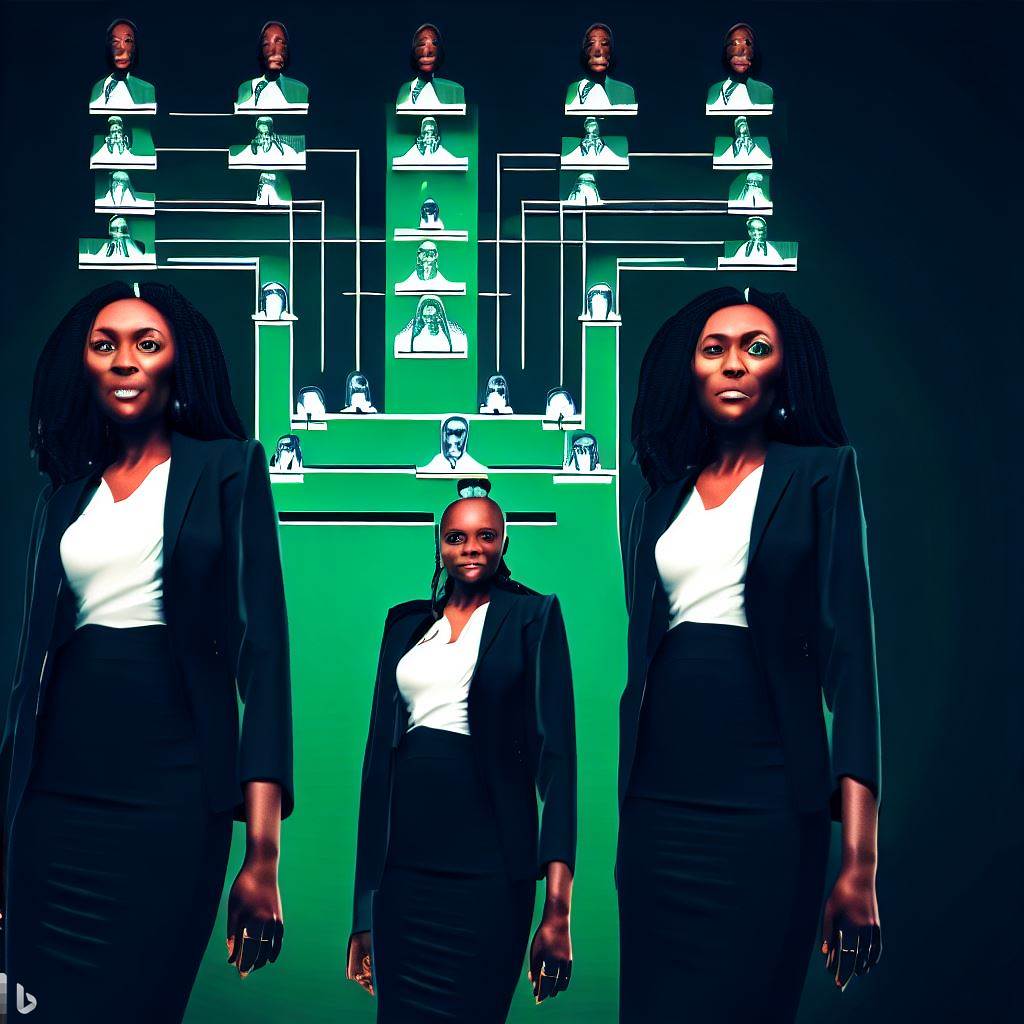Introduction
The Nigerian government and military have a long-standing relationship that has had a significant impact on the country’s development. Understanding this relationship is critical to understanding Nigeria’s history, politics, and socio-economic landscape.
The aim of this comparative study is to analyze this dynamic relationship and provide insights into how it has influenced governance in the country.
By examining the historical context of the Nigerian government and military relationship and the various changes that have occurred over the years, this study hopes to shed light on the implications of this relationship for political stability, transparency, and economic growth in the country.
Read: Influential Leaders of the Nigerian Government: A Review
Historical Background of Nigerian Government and Military
The history of Nigerian government and military is rich and complex, shaped by significant events that have occurred over the years.
The country gained independence from Britain in 1960, and since then, the political system has undergone significant changes. Here are some of the highlights:
- Colonial rule: Nigeria was under British colonial rule from the late 19th century until independence in 1960. During this time, the British established a system of indirect rule, where traditional leaders were given some measure of authority to govern their own people.
- Independence: Nigeria gained independence in 1960, and the country’s first prime minister was Sir Abubakar Tafawa Balewa. A federal system of government was established, with power divided between the federal government and the individual states.
- Military coup of 1966: In 1966, a group of army officers staged a coup, leading to the ousting of the prime minister and the establishment of military rule.
- Biafran War: In 1967, the Igbo people in the southeast of the country seceded to form the Republic of Biafra. The Nigerian government declared war, and the conflict lasted for three years, resulting in the deaths of over a million people.
- Return to civilian rule: In 1979, after years of military rule, civilian government was reinstated. Shehu Shagari was elected as Nigeria’s first civilian president in 13 years.
- Military coup of 1983: In 1983, another military coup overthrew the civilian government, and Major General Muhammadu Buhari became the new head of state.
- Return to civilian rule: In 1999, after several more military coups and years of instability, Nigeria returned to civilian rule. Olusegun Obasanjo was elected president, and he served two terms in office.
- Boko Haram insurgency: In recent years, Nigeria has been plagued by the Boko Haram insurgency, a violent Islamist group that has carried out numerous attacks on civilians and government targets.
Over the years, Nigeria has experienced different types of government and military regimes. Some of the notable ones are
- Military dictatorship: Nigeria has been ruled by military dictatorships at various times, especially in the 1980s and 1990s.
- Democratic government: Nigeria has had several democratic governments since 1999, with some notable successes and failures.
- Federalism: Nigeria is a federal state, with power divided between the federal government and the states. This system has been in place since independence in 1960.
- Authoritarianism: Some of Nigeria’s military leaders have been accused of authoritarianism, with allegations of human rights abuses, corruption, and other forms of oppression.
In essence, the history of the Nigerian government and military is complex and often tumultuous.
From colonial rule to independence, military coups to democratic governments, Nigeria has experienced a range of political regimes over the years.
Understanding this history is crucial to understanding the challenges and opportunities facing Nigeria today.
Read: The Role of Women in the Nigerian Military
Nigerian Government and Military: A Comparative Analysis
Comparative analysis refers to the process of examining and comparing two or more things to identify similarities and differences.
In the context of the Nigerian government and military, comparative analysis can be used to examine the similarities and differences between the two entities.
There are different approaches to comparative analysis. One approach is the case study approach, which involves the in-depth analysis of a single case.
Another approach is the comparative method, which involves the analysis of several cases to identify patterns and make generalizations.
Similarities Between Nigerian Government and Military
- Both the government and military hold positions of power in Nigeria.
- They both play a crucial role in the country’s governance and security.
- Both entities consist of individuals from various ethnic and religious backgrounds.
- They both face challenges related to corruption and inefficient bureaucracy.
Differences Between Nigerian Government and Military
- The government is responsible for the country’s policy-making, while the military is responsible for defense and security.
- The government is elected by the people, while the military is appointed by the government.
- There are different levels of governance in the government, while the military has a hierarchical structure.
- The government is subject to civilian oversight, while the military is subject to military oversight.
Strengths and Weaknesses of Nigerian Government and Military
The Nigerian government has several strengths, including the fact that it is democratically elected and represents the will of the people.
Transform Your Career in Nigeria
Discover unmatched expertise with our personalized Career Consulting service. Navigate Nigeria’s job market with a strategy tailored just for you.
Get StartedIt also has a relatively stable constitution and legal system. However, the government also has weaknesses, including corruption, inefficiency, and a lack of resources.
Similarly, the Nigerian military has strengths such as its experience in dealing with internal security threats. It also has a strong presence in the country, which allows it to respond quickly to security challenges.
However, the military also has weaknesses, including human rights abuses and a lack of adequate training and equipment.
In summary, comparative analysis is a useful tool for examining the similarities and differences between the Nigerian government and military.
Despite their differences, both entities play critical roles in the governance and security of Nigeria.
It is crucial to understand their strengths and weaknesses to ensure that they can work together effectively to meet the needs of the country and its citizens.
Read: A Day in the Life of a Nigerian Military Officer
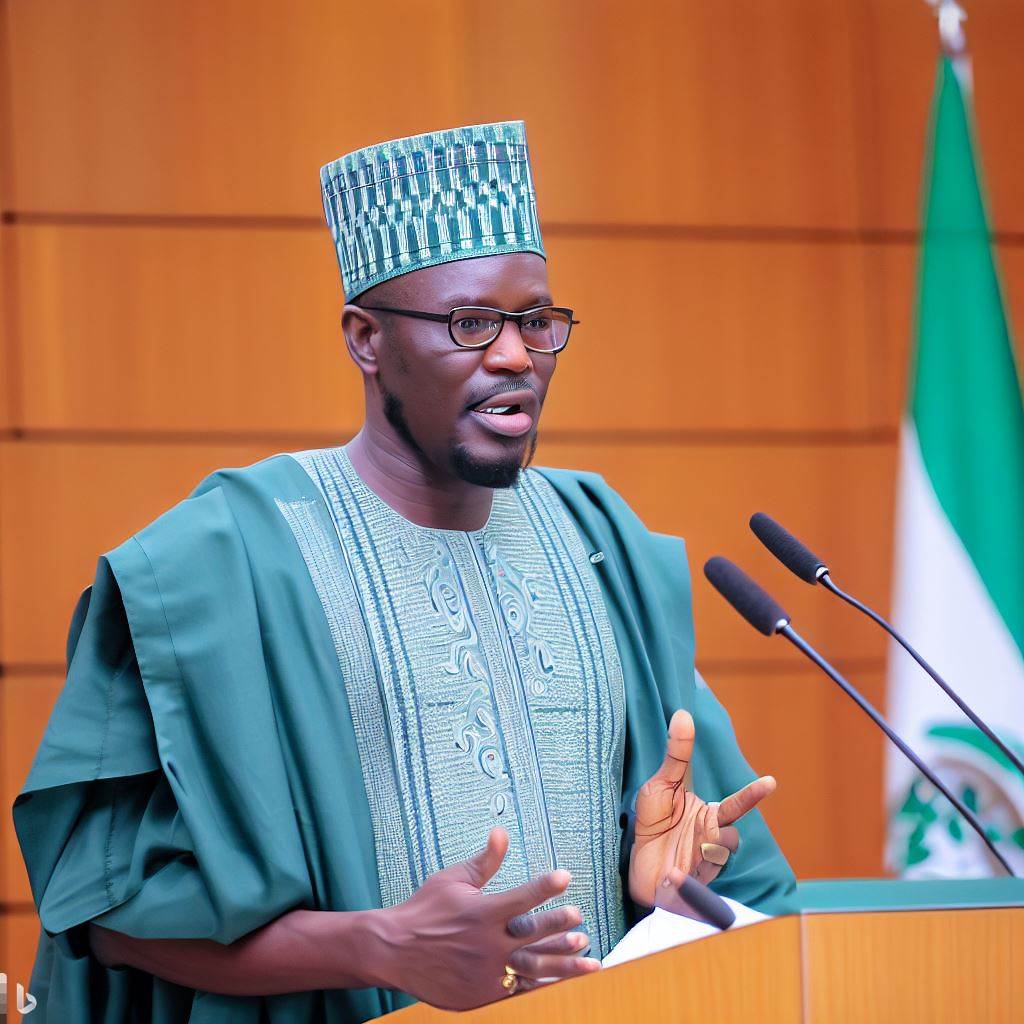
You Might Also Like: Technology in Nigeria’s Military: Officer Insights
Uncover the Details: Nigeria’s Political Landscape: A 2023 Outlook
Nigeria’s Military Rule and Democracy
Nigeria has a long history of military interventions in government affairs, with a total of six military coups between 1966 and 1999.
The country’s transition from military rule to democracy in 1999 marked an important turning point in its political history.
Nigeria’s Transition from Military Rule to Democracy
In 1999, Nigeria held its first democratic elections since the military coup of 1983. This marked the end of decades of military rule and the beginning of a new era of democracy in Nigeria.
The election was won by Olusegun Obasanjo, a former military ruler who had been imprisoned for his involvement in a failed coup in 1995.
Since the transition to democracy, Nigeria has held five presidential elections, all of which have been deemed free and fair by international observers. This is a clear indication that Nigeria is moving towards consolidating its democratic system.
The Impact of Military Rule on Nigeria’s Democratic Development
Military rule has had a significant impact on Nigeria’s democratic development.
During the years of military rule, human rights abuses, corruption, and economic mismanagement were prevalent, and the country’s infrastructure deteriorated.
These factors have had a negative impact on the development of democratic institutions in Nigeria.
Military rule also created a culture of impunity, where those in power were not held accountable for their actions.
This culture of impunity has continued to persist in Nigeria even after the transition to democracy; corruption and abuse of power remain major challenges facing Nigeria’s democratic development.
Read: Top 10 Highest Paying Professions in Nigeria: 2023 Edition
The Challenges Faced by Nigeria’s Democracy
Nigeria’s democracy faces many challenges, including corruption, poverty, ethnic and religious tensions, and electoral violence.
Corruption is perhaps the most significant challenge facing Nigeria’s democracy. Corruption is pervasive at all levels of government and has severely undermined the legitimacy of democratic institutions in Nigeria.
In addition, poverty and inequality remain major problems in Nigeria. These have contributed to the rise of ethnic and religious tensions, as different groups compete for scarce resources.
This has made it more difficult to build a cohesive national identity and has undermined the stability of Nigeria’s democracy.
Publish Your Professional Profile, Business or Brand
Showcase your expertise, gain trust, and boost visibility instantly on Professions.ng.
Publish NowFinally, electoral violence has been a recurring problem in Nigeria’s democratic elections. The 2011 elections, in particular, were marred by violence that left over 800 people dead.
Electoral violence has the potential to undermine the legitimacy of Nigeria’s democratic institutions and create a cycle of violence that is difficult to break.
Nigeria’s transition from military rule to democracy was a significant milestone in the country’s political history.
However, challenges remain in consolidating Nigeria’s democracy. Corruption, poverty, and ethnic and religious tensions are major obstacles that must be overcome in order to build a stable and democratic Nigeria.
The task ahead is not an easy one, but with determination and commitment, Nigeria’s democracy can continue to grow and mature.
Read: The Evolution and History of the Government Structure of Nigeria
Nigerian Government and Military: A Reflection
A comparative study on the Nigerian Government and Military yielded key insights:
- Military involvement in politics since independence impacts democratic development negatively, with frequent coups and distrust in democracy.
- Corruption prevalent in both government and military leads to economic struggles and inequality.
- Implications for Nigeria’s political future:
Reforms needed to serve people, not self; strengthen anti-corruption measures and increase transparency.
Shift in power dynamics to subordinate military to civilian authority; invest in civilian institutions. Rebuild trust in democracy through public participation and civic education.
In fact, Nigeria faces challenges: corruption and military intervention undermine political stability. Reforms and investments vital for a stable and democratic future.
Discover More: Women in Nigeria’s Police Force: Roles and Opportunities
Conclusion
When it comes to the Nigerian government and military, it is crucial to undertake a comparative study.
The Nigerian Military has played a critical role in the governance of the country, both positively and negatively. It is vital to understand this in a historical context.
The Nigerian government has had its fair share of successes and failures. The Military has influenced the governance structure of the country for an extended period. Nigeria’s military has been a driver of democratic transitions in West Africa.
However, the military’s involvement had led to a decline in democratic governance and the rule of law in the 1990s.
The current relationship between the Nigerian government and Military is that of collaboration and challenges.
The government has taken steps to modernize the military. These include partnering with other countries to provide relevant training and equipment for the military.
The government has also been increasing the military’s budget in recent years, indicating an attempt to enhance their capabilities. The Military has played a critical role in fighting insurgency and terrorism in the country.
However, there have also been concerns about abuses committed by the military, particularly in their fight against terrorism.
The government needs to establish better accountability measures to prevent human rights abuses by the military.
Overall, it is crucial to examine the relationship between the Nigerian government and military in a comparative study.
While the military has played a vital role in the governance of the country, it also poses challenges to democratic governance.
The government needs to take proactive steps to ensure the military’s accountability and respect for human rights in their operations.

